A White Paper on Individual Accountability and the Path Beyond Victimhood
Introduction
We stand at a crossroads in human consciousness. Never before have we possessed such unprecedented access to information, resources, and opportunities for personal growth, yet paradoxically, we witness an escalating culture of blame, external attribution, and victimhood that permeates every level of society. From individual relationships to global discourse, from workplace dynamics to social movements, the tendency to locate responsibility outside ourselves has become not just commonplace, but institutionalized.
This white paper examines the psychological, social, and spiritual dimensions of victimhood culture, exploring how the abdication of personal responsibility creates cycles of disempowerment that affect individuals, communities, and society at large. More importantly, it presents a framework for reclaiming individual sovereignty—the recognition that true power lies not in controlling external circumstances, but in taking full ownership of our responses, choices, and growth.
The arguments presented here are not meant to dismiss genuine injustice or systemic challenges, but rather to illuminate how our relationship to adversity determines whether we emerge strengthened or diminished by life’s inevitable difficulties.
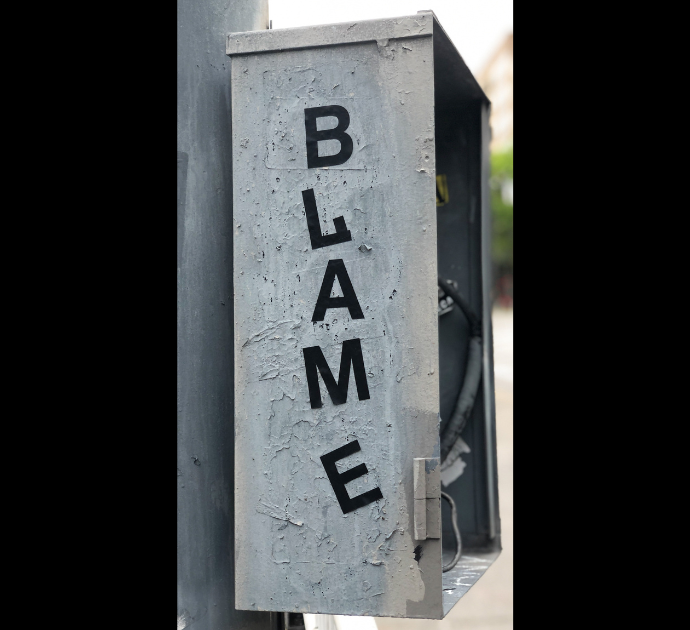
The Architecture of Victimhood Culture
Defining the Phenomenon
Victimhood culture represents a fundamental shift in how individuals and groups relate to adversity, challenge, and personal agency. It allows blame-shifting, excuse-making and self-pity to keep people from being accountable for their own actions, creating a framework where external forces are consistently viewed as the primary determinants of one’s circumstances and outcomes.
This culture is characterized by several key elements:
External Locus of Control: The belief that life outcomes are primarily determined by forces beyond one’s influence—other people, societal structures, economic systems, or historical events. This perspective fundamentally undermines the individual’s sense of agency and capacity for self-determination.
Identity Through Suffering: Victimhood culture emphasizes personal suffering as a key identity component, directly tied to being a member of a marginalized group. Rather than viewing challenges as temporary obstacles to overcome, individuals begin to define themselves through their struggles, creating a psychological investment in maintaining victim status.
Competitive Grievance: The emergence of what researchers term “competitive victimhood,” where individuals and groups compete to establish the legitimacy and severity of their suffering, creating hierarchies of oppression that paradoxically divide rather than unite those facing genuine challenges.
Responsibility Deflection: A systematic pattern of attributing personal failures, disappointments, and setbacks to external causes while simultaneously diminishing acknowledgment of personal choices, habits, and behaviors that contribute to outcomes.
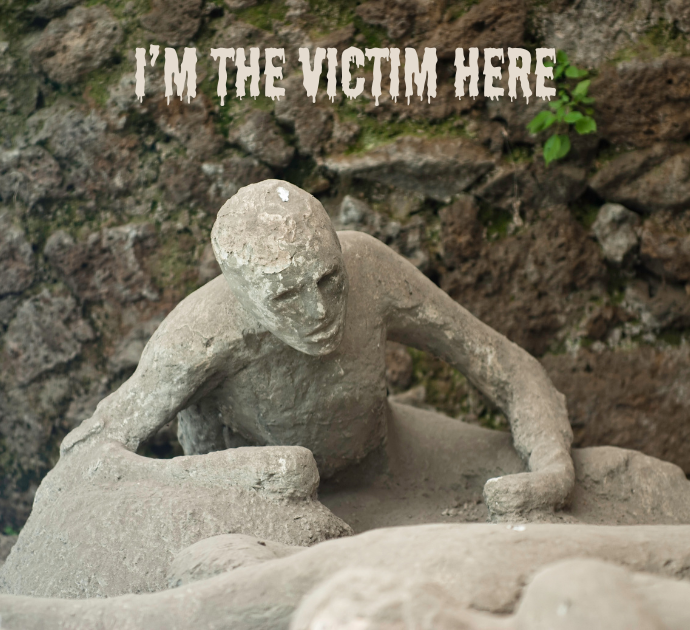
The Psychological Substrate
Understanding victimhood culture requires examining the psychological mechanisms that make it attractive to individuals. At its core, victimhood provides several psychological benefits that can become addictive:
Protection from Accountability: By locating responsibility externally, individuals protect themselves from the discomfort of acknowledging their own contributions to their circumstances. This provides short-term emotional relief but long-term disempowerment.
Moral Superiority: Victim status often confers a form of moral authority, allowing individuals to critique and judge others from a position of assumed righteousness without examining their own behaviors or motivations.
Attention and Resources: In many social and institutional contexts, victim status attracts sympathy, support, and resources. This creates perverse incentives that reward helplessness over empowerment.
Avoidance of Risk: Taking responsibility requires taking risks—the risk of failure, the risk of discovering one’s own limitations, the risk of having to change comfortable patterns. Victimhood eliminates these risks by making effort seem futile.
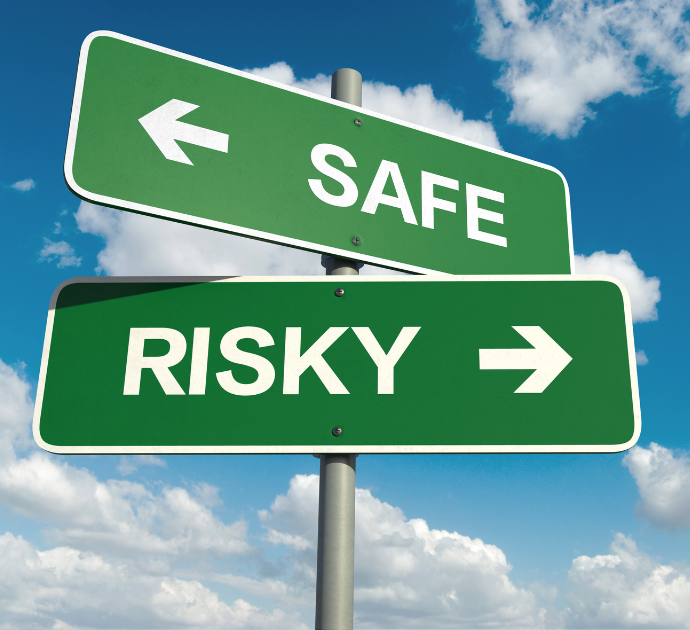
The Individual Cost of Victimhood
Psychological Imprisonment
When individuals consistently attribute their circumstances to external forces, they create what can only be described as a psychological prison. The bars of this prison are not made of steel, but of beliefs—beliefs that one is powerless, that others are responsible for one’s happiness, that change is impossible without external intervention.
This mental framework creates several devastating consequences:
Learned Helplessness: Repeated attribution of outcomes to external forces literally rewires the brain to expect powerlessness. Individuals begin to give up before trying, convinced that their efforts are meaningless in the face of overwhelming external obstacles.
Emotional Volatility: When one’s emotional state depends entirely on external circumstances and other people’s behaviors, emotional stability becomes impossible. The individual becomes a leaf in the wind, tossed about by every external change or perceived slight.
Relationship Dysfunction: Victimhood mentality poisons relationships by creating impossible expectations. Partners, friends, and family members are expected to manage the victim’s emotional state, take responsibility for their happiness, and continuously prove their worth through accommodation and appeasement.
Spiritual Stagnation: Perhaps most tragically, victimhood culture prevents the spiritual growth that comes from facing adversity with courage and responsibility. The challenges that could serve as catalysts for wisdom, strength, and compassion instead become sources of resentment and stagnation.

The Competence Atrophy
One of the most insidious effects of victimhood culture is what we might call “competence atrophy”—the gradual erosion of practical skills, emotional resilience, and problem-solving capacity that occurs when individuals consistently look outside themselves for solutions.
Like muscles that weaken without use, the psychological and practical capacities required for self-reliance begin to deteriorate. Individuals lose confidence in their ability to navigate challenges, make decisions, or create positive change in their lives. This creates a self-reinforcing cycle where decreased competence leads to increased dependence, which further reinforces victim identity.
The Social Contagion of Blame
Institutional Enablement
Modern institutions—educational, therapeutic, political, and corporate—have inadvertently created systems that reward and reinforce victimhood rather than empowerment. Well-intentioned efforts to address inequality and provide support have sometimes morphed into mechanisms that incentivize helplessness.
Educational institutions that focus more on identifying oppression than building resilience create graduates who are skilled at diagnosing problems but ill-equipped to solve them. Therapeutic approaches that emphasize trauma without equally emphasizing recovery and empowerment can trap individuals in perpetual patient status. Political movements that gain power through grievance rather than solutions become invested in maintaining the problems they claim to address.
The Therapy Industrial Complex: While legitimate therapy serves a crucial role in healing, the expansion of therapeutic language and concepts into everyday life has sometimes pathologized normal human challenges and emotions. The tendency to label every difficulty as trauma and every disagreement as abuse dilutes the meaning of these terms while encouraging individuals to see themselves as damaged rather than capable of growth.
Educational Disempowerment: Educational systems that emphasize systemic oppression without equally emphasizing personal agency create a generation of individuals who are adept at identifying problems but feel powerless to create solutions. Students learn to see themselves as products of their circumstances rather than agents of change.
Political Instrumentalization: When political movements depend on maintaining victim status for their members, they develop a vested interest in preventing the empowerment they claim to pursue. Success becomes problematic because it threatens the narrative that justifies the movement’s existence.

The Economic Dimension
Victimhood culture has significant economic implications that are rarely discussed. When individuals adopt a victim mentality, they often develop patterns of behavior that perpetuate economic disadvantage:
Work Ethic Deterioration: The belief that success is determined by external factors rather than effort and competence leads to decreased motivation and lower performance standards. Why excel if the system is rigged against you?
Opportunity Blindness: Victims become skilled at identifying obstacles but lose the ability to recognize opportunities. The same economic environment that presents insurmountable barriers to the victim-minded individual may offer numerous possibilities to someone with an ownership mentality.
Resource Misallocation: Rather than investing time, energy, and resources in skill development, relationship building, and productive activities, victim-minded individuals often focus on protest, complaint, and demand for external solutions.
Entrepreneurial Paralysis: The entrepreneurial spirit—the willingness to take risks, innovate, and create value—is antithetical to victim mentality. Societies with high levels of victimhood culture show decreased rates of business formation and innovation.
The Racial and Cultural Instrumentalization of Victimhood
The Weaponization of Historical Injustice
One of the most troubling aspects of contemporary victimhood culture is how historical injustices—which were real and significant—have been weaponized to justify present-day irresponsibility and excuse poor outcomes. This represents a profound disservice both to those who suffered genuine oppression and to those who are currently discouraged from taking ownership of their lives.
Historical awareness should inform present action, not paralyze it. When past injustices become excuses for present inaction, we dishonor both the victims of historical oppression and the potential of current generations to transcend those limitations.
Intergenerational Victim Identity: The tendency to inherit victim status based on group membership rather than personal experience creates artificial limitations and resentments. Young people are taught to see themselves as oppressed before they have even attempted to exercise their agency in the world.
Cultural Determinism: The belief that cultural background predetermines individual outcomes represents a form of soft racism that assumes certain groups are incapable of overcoming challenges that others have successfully navigated.
Success Policing: Perhaps most perniciously, victimhood culture often punishes members of historically oppressed groups who achieve success through personal effort, labeling them as sellouts, exceptions, or beneficiaries of privilege rather than examples of what is possible.

The Poverty of Expectations
Nothing demonstrates the destructive nature of victimhood culture more clearly than its approach to economic disadvantage. Rather than empowering individuals with tools, skills, and mindsets that enable upward mobility, victimhood culture often reinforces the very patterns that perpetuate poverty.
Defeatist Messaging: Constant emphasis on systemic barriers, while ignoring examples of individuals who have overcome those same barriers, creates learned helplessness rather than inspiration and determination.
Skill Development Neglect: Time and energy spent on protest and blame could be invested in education, skill development, networking, and productive activities that directly improve individual circumstances.
Family Structure Dismissal: The reluctance to acknowledge the role of family structure, personal habits, and individual choices in economic outcomes prevents honest conversation about the factors most directly under individual control.
Dependency Normalization: The normalization of government dependency and external support as permanent solutions rather than temporary assistance undermines the development of self-sufficiency skills and mindsets.

The Path to Sovereignty
Reclaiming Personal Agency
The antidote to victimhood culture is not denial of challenges or dismissal of legitimate grievances, but rather the cultivation of what we might call “sovereign consciousness”—the recognition that regardless of external circumstances, we retain the power to choose our responses, attitudes, and actions.
Sovereign consciousness operates on several key principles:
Response-ability: The recognition that between stimulus and response lies a space of choice. No matter what happens to us, we retain the ability to choose how we respond. This choice point is where true freedom and power reside.
Internal Locus of Evaluation: Rather than measuring success and failure based on external validation or circumstances, sovereign individuals develop internal standards and metrics. They ask not “How did others treat me?” but “How did I handle the situation?”
Growth Orientation: Challenges and setbacks are viewed as opportunities for development rather than evidence of victimization. The question becomes not “Why is this happening to me?” but “What can I learn from this?”
Contribution Focus: Rather than asking what the world owes them, sovereign individuals ask what they can contribute. This shift from entitlement to service fundamentally changes one’s relationship with life.
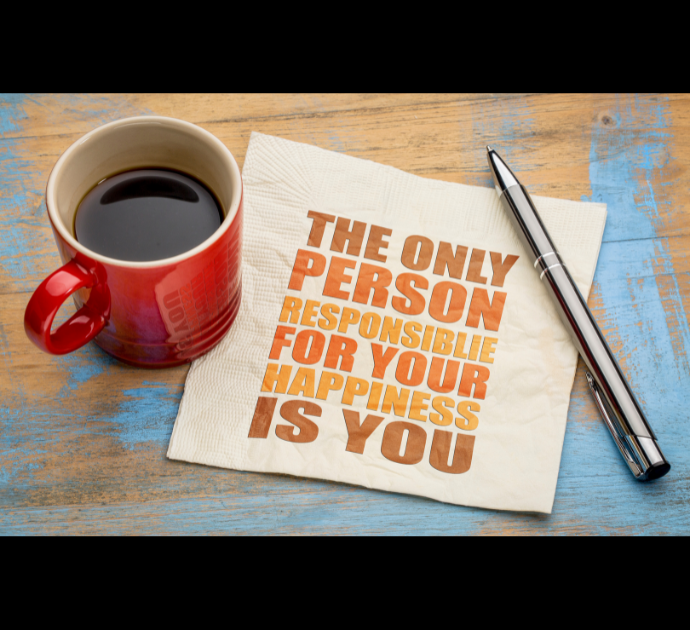
The Practical Framework
Transitioning from victimhood to sovereignty requires practical steps that can be implemented by any individual willing to take responsibility for their growth:
1. Accountability Inventory: Regularly examine your circumstances and identify the specific actions, choices, and patterns that have contributed to current outcomes. This is not about self-blame but about recognizing your power to create change.
2. Skill Development Priority: Invest time and energy in developing practical skills that increase your capacity to create value and solve problems. Every skill acquired is a form of personal sovereignty.
3. Relationship Audit: Evaluate your relationships based on mutual respect and reciprocity rather than rescue dynamics. Healthy relationships require two sovereign individuals, not a victim and a savior.
4. Media Diet: Consciously curate your information intake to include examples of resilience, achievement, and personal triumph rather than constant reinforcement of victim narratives.
5. Service Integration: Regularly engage in activities that serve others without expectation of reward. Service breaks the self-absorption that characterizes victim mentality and builds authentic self-esteem.
6. Physical Sovereignty: Take full responsibility for your physical health, fitness, and appearance. The discipline required for physical self-care builds the foundation for psychological sovereignty.

The Spiritual Dimension
True sovereignty ultimately rests on spiritual foundations—the recognition that we are more than our circumstances, more than our history, more than our group identities. Spiritual maturity involves understanding that life’s challenges are not random punishments but opportunities for growth, wisdom, and the development of character.
From this perspective, adversity becomes a teacher rather than an enemy. Injustice becomes a call to develop strength and resilience rather than an excuse for weakness and dependency. Setbacks become temporary obstacles to overcome rather than permanent barriers to success.
This spiritual understanding does not minimize the reality of suffering or injustice, but it contextualizes these experiences within a larger framework of meaning and purpose. When we understand that our deepest growth often comes through our greatest challenges, we begin to relate differently to difficulty.

Collective Transformation
Building Accountable Communities
The shift from victimhood to sovereignty cannot occur in isolation. We need communities that support and reinforce personal responsibility while providing genuine care and assistance to those in need. This requires a delicate balance between compassion and accountability.
Accountable communities are characterized by:
High Expectations: Members are expected to take responsibility for their choices and outcomes while receiving support in developing the capacity to meet those expectations.
Skill Sharing: Rather than simply providing resources, community members actively teach and mentor each other, sharing practical skills and wisdom.
Success Celebration: Achievement through effort and integrity is celebrated rather than dismissed or attributed to privilege or luck.
Failure Reframing: Setbacks are treated as learning opportunities and temporary obstacles rather than evidence of systemic oppression or personal inadequacy.
Mutual Challenge: Community members care enough about each other to provide honest feedback and challenge self-defeating patterns.
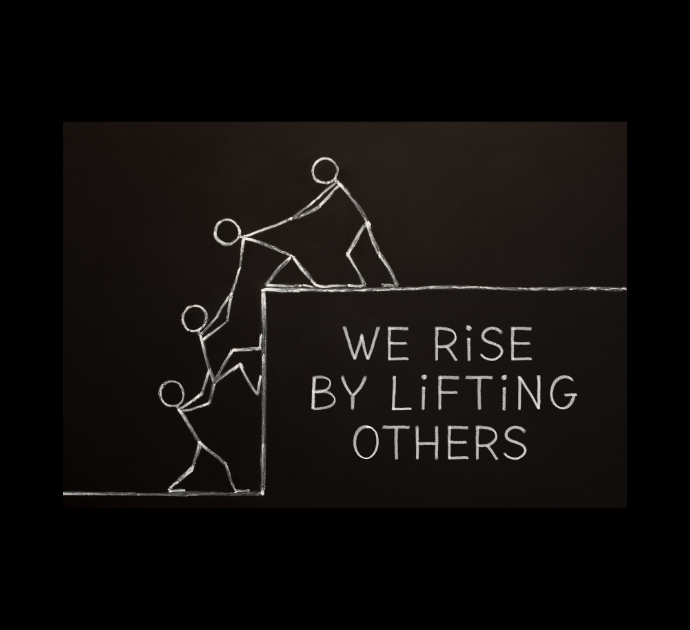
Institutional Reform
Transforming victimhood culture also requires reforming the institutions that inadvertently reinforce it. This means:
Educational Reform: Schools should emphasize resilience, problem-solving, and personal agency alongside social awareness. Students need to learn both how to identify problems and how to solve them.
Therapeutic Evolution: Mental health approaches should balance trauma awareness with empowerment, ensuring that understanding past wounds leads to present healing and future strength.
Political Transformation: Political movements should be judged not by how effectively they maintain grievance but by how successfully they empower their constituents to create positive change.
Corporate Responsibility: Organizations should create cultures of accountability that support growth rather than blame cultures that punish mistakes or victim cultures that excuse poor performance.

Cultural Renewal
Ultimately, transcending victimhood culture requires a renewal of cultural values that emphasize:
Character Over Circumstances: Judging individuals based on how they handle challenges rather than the ease or difficulty of their situations.
Effort Over Outcome: Recognizing and rewarding genuine effort and improvement rather than only celebrating final results.
Growth Over Grievance: Focusing on development and progress rather than past wounds and current complaints.
Service Over Self: Emphasizing contribution to others and society rather than personal comfort and convenience.
Truth Over Comfort: Valuing honest assessment and authentic feedback over protective narratives and comfortable illusions.

The Awakening of Inner Magic
The Alchemical Transformation
When an individual transcends victimhood and claims their sovereignty, something profound occurs that goes beyond mere psychological healing or practical empowerment. A deeper transformation takes place—an awakening of what can only be described as magical consciousness. This is not magic in the sense of fantasy or escapism, but magic in its truest form: the recognition and activation of our inherent power to influence reality through aligned intention, clear perception, and authentic action.
The journey from victim to sovereign is fundamentally an alchemical process. The lead of limitation transforms into the gold of limitless potential. The fog of blame and external attribution clears, revealing the crystalline clarity of mind that emerges when we stop filtering reality through the lens of victimhood. This clarity is not merely intellectual—it is a full-spectrum awakening that encompasses mind, heart, and spirit.

Clarity of Mind: The Mental Liberation
When we cease the exhausting mental gymnastics required to maintain victim narratives—the constant scanning for threats, the elaborate justifications for inaction, the complex blame calculations—our mental energy becomes available for higher purposes. The mind, no longer occupied with defensive strategies and excuse-making, develops what mystics have long called “mirror-like awareness”—the capacity to perceive situations with stunning clarity, free from the distortions of self-pity and resentment.
This mental clarity manifests as:
Intuitive Intelligence: The ability to perceive patterns, opportunities, and solutions that remain invisible to those trapped in victim consciousness. When the mind is not clouded by blame and self-pity, it becomes remarkably adept at recognizing the subtle currents of possibility that flow through every situation.
Strategic Vision: The capacity to see beyond immediate circumstances and envision long-term outcomes. Victims think in terms of problems; sovereigns think in terms of possibilities and pathways to manifestation.
Discernment: The refined ability to distinguish between what serves growth and what perpetuates limitation, what is true and what is merely comfortable, what is within our power and what is not.
Creative Problem-Solving: The liberation of creative faculties that were previously constrained by the belief that external forces determine outcomes. When we know ourselves as creators rather than victims, our capacity for innovative solutions expands exponentially.

Clarity of Heart: The Emotional Mastery
Perhaps even more transformative than mental clarity is the emotional clarity that emerges from sovereignty. The heart, no longer burdened by the heavy emotions of victimhood—resentment, self-pity, envy, and blame—becomes available for the higher emotions that fuel true magic: love, compassion, gratitude, and joy.
This emotional clarity creates:
Emotional Stability: When our emotional state is no longer dependent on external circumstances or other people’s behavior, we develop what spiritual traditions call “equanimity”—the ability to remain centered and peaceful regardless of external conditions.
Authentic Compassion: True compassion can only emerge from strength, not weakness. When we have healed our own victim wounds, we can serve others without enabling their victimhood or becoming caught in rescue dynamics.
Magnetic Presence: There is something inherently attractive about individuals who have claimed their sovereignty. They emanate a quality of authentic power and peace that naturally draws others seeking genuine guidance rather than commiseration.
Heart Coherence: Modern research has shown that emotional coherence creates measurable changes in the heart’s electromagnetic field, which extends far beyond the physical body. Sovereign individuals literally radiate a different energetic signature that can be felt by those around them.

Clarity of Spirit: The Soul’s Remembrance
The deepest transformation occurs at the spiritual level, where the soul remembers its true nature as a creative force rather than a victim of circumstances. This spiritual awakening is what transforms ordinary individuals into what we might call “awakened leaders”—those who serve not from ego or personal ambition but from a deep recognition of their responsibility as conscious agents of positive change.
Spiritual clarity manifests as:
Connection to Purpose: The recognition that we are here not merely to survive or even to be happy, but to serve a larger purpose that transcends personal comfort and convenience.
Unity Consciousness: The experiential understanding that separation is an illusion and that our individual healing and empowerment contributes to the healing of the collective.
Divine Partnership: The recognition that we are co-creators with the universe itself, capable of manifesting outcomes that serve the highest good through aligned intention and inspired action.
Timeless Perspective: The ability to see beyond immediate circumstances and temporary setbacks to the larger evolutionary process of which we are all part.

The Emergence of Magical Capabilities
When mind, heart, and spirit achieve this level of clarity and alignment, what we call “magical capabilities” naturally emerge. These are not supernatural powers but the natural abilities of conscious beings operating from their full potential:
Manifestation Power: The ability to bring ideas into physical reality through focused intention, aligned action, and unwavering commitment. When we are no longer sabotaging ourselves with victim beliefs, our natural manifestation abilities can operate unimpeded.
Healing Presence: The capacity to facilitate healing in others simply through our presence and example. When we embody sovereignty, we give others permission to claim their own power.
Synchronicity Navigation: The ability to recognize and align with the meaningful coincidences and opportunities that the universe continuously provides to those who are awake and receptive.
Energy Mastery: The skill of managing and directing our own energy consciously, as well as the ability to influence energetic environments through our presence and intention.
Prophetic Vision: The capacity to perceive the potential futures that are trying to emerge and to serve as midwives for positive change.

The Call to Conscious Leadership
From Personal Healing to Collective Service
The ultimate purpose of claiming our sovereignty and developing our magical capabilities is not personal aggrandizement but service to the greater whole. As we heal our own victim wounds and develop our inner powers, we naturally become what the world desperately needs: conscious leaders who can guide others from victimhood to empowerment.
This leadership is not about domination or control but about modeling possibility. When others see someone who has transformed their pain into power, their limitations into gifts, their circumstances into opportunities, it awakens hope and inspiration. It demonstrates that transformation is possible and provides a living example of what sovereignty looks like in action.

Conscious leaders operate from several key principles:
Leading by Example: Rather than preaching or lecturing, they embody the change they wish to see in the world. Their very presence becomes a teaching and an invitation.
Empowering Others: Instead of creating dependency, conscious leaders focus on helping others discover and develop their own inner power and capabilities.
Serving Evolution: They recognize that we are living through a crucial time in human evolution—a time when humanity is being called to mature from victim consciousness to creator consciousness.
Holding Vision: They maintain awareness of the more beautiful world that is possible and work tirelessly to manifest that vision through their thoughts, words, and actions.

The Ripple Effect of Transformation
Every individual who transforms from victim to sovereign creates ripples that extend far beyond their personal life. They become catalysts for change in their families, communities, and spheres of influence. They model a different way of being that challenges others to examine their own victim patterns and consider new possibilities.
This ripple effect is how worlds change—not through force or manipulation, but through the magnetic power of authentic transformation. When enough individuals claim their sovereignty and develop their magical capabilities, a tipping point is reached where the entire culture begins to shift toward greater consciousness, compassion, and empowerment.
Building the More Magical World
The vision of a more magical world is not fantasy but potential reality—a world where:
Individual Sovereignty is Honored: People are recognized and valued for their unique gifts and contributions rather than their victim status or group identities.
Authentic Power is Celebrated: True power—the power to create, heal, inspire, and serve—is distinguished from false power based on domination and control.
Magical Thinking Prevails: Not magical thinking in the sense of wishful thinking or denial, but magical thinking in the sense of recognizing our power to influence reality through consciousness and aligned action.

Collaboration Replaces Competition: When people are secure in their own sovereignty, they naturally seek to collaborate rather than compete, recognizing that everyone’s empowerment contributes to the collective good.
Beauty and Wonder are Prioritized: A magical world is a beautiful world where art, creativity, nature, and human potential are valued above material accumulation and ego satisfaction.
Love Guides Decision-Making: Choices are made based on what serves love, growth, and the highest good rather than fear, scarcity, and self-protection.
This world is not achieved through political revolution or social engineering but through the individual choice of countless people to claim their sovereignty, develop their capabilities, and serve the vision of what is possible. It is a world that emerges naturally when enough people remember who they truly are and begin living from that remembrance.
The Individual’s Choice
The Moment of Decision
Every individual faces moments of choice when confronted with adversity: Will I use this experience to grow stronger or to justify limitation? Will I focus on what I can control or what I cannot? Will I take responsibility for my response or blame external circumstances?
These moments of choice are sacred opportunities for personal transformation. They represent the difference between remaining a victim of circumstances and becoming a creator of one’s destiny. The accumulation of these choices over time determines whether we live lives of empowerment or victimization.

The Courage Required
Choosing sovereignty over victimhood requires tremendous courage because it means giving up the secondary benefits of victim status—the sympathy, the excuses, the moral superiority, the reduced expectations. It means accepting full responsibility for our lives while releasing the fantasy that someone else will save us.
This courage is not the absence of fear but the willingness to act in spite of fear. It is the recognition that the temporary discomfort of taking responsibility is far preferable to the permanent limitation of victim identity.
The Freedom Achieved
The reward for choosing sovereignty is authentic freedom—not the absence of challenges or obstacles, but the knowledge that no external circumstance can diminish our essential dignity and power. This freedom cannot be granted by others or taken away by circumstances; it can only be claimed by individuals willing to accept full responsibility for their lives.
Conclusion: The Call to Greatness
We live in an age of unprecedented opportunity disguised as unprecedented oppression. Never before have so many people had access to education, information, economic opportunity, and social mobility, yet never before have so many people believed themselves to be victims of their circumstances.
The choice before us is clear: We can continue to participate in the culture of blame, victimhood, and external attribution, thereby surrendering our power and potential to the whims of circumstance and the actions of others. Or we can choose the path of sovereignty, personal responsibility, and authentic empowerment.
This choice is not made once but thousands of times throughout our lives. Every moment of adversity, every interpersonal conflict, every disappointment or setback presents us with the opportunity to claim our power or surrender it.

The path of sovereignty is not easier than the path of victimhood—in fact, it is significantly more challenging. It requires continuous self-examination, persistent effort, and the willingness to face uncomfortable truths about ourselves and our choices. But it is the only path that leads to authentic strength, genuine peace, and lasting fulfillment.
The question is not whether you will face challenges, injustice, or adversity—these are guaranteed elements of the human experience. The question is whether you will use these experiences to develop strength, wisdom, and resilience, or whether you will use them to justify limitation, blame, and powerlessness.
The choice, as always, is yours. And in that choice lies both your greatest responsibility and your greatest freedom.
This white paper represents a call to individual and collective awakening—a recognition that true empowerment comes not from the absence of challenges but from our willingness to meet those challenges with courage, responsibility, and determination. The path forward requires not the elimination of adversity but the cultivation of the strength to transform adversity into wisdom, setbacks into growth, and challenges into opportunities for greatness.
The time for victimhood is over. The time for sovereignty has begun.
High Priestess
Agape Covens

